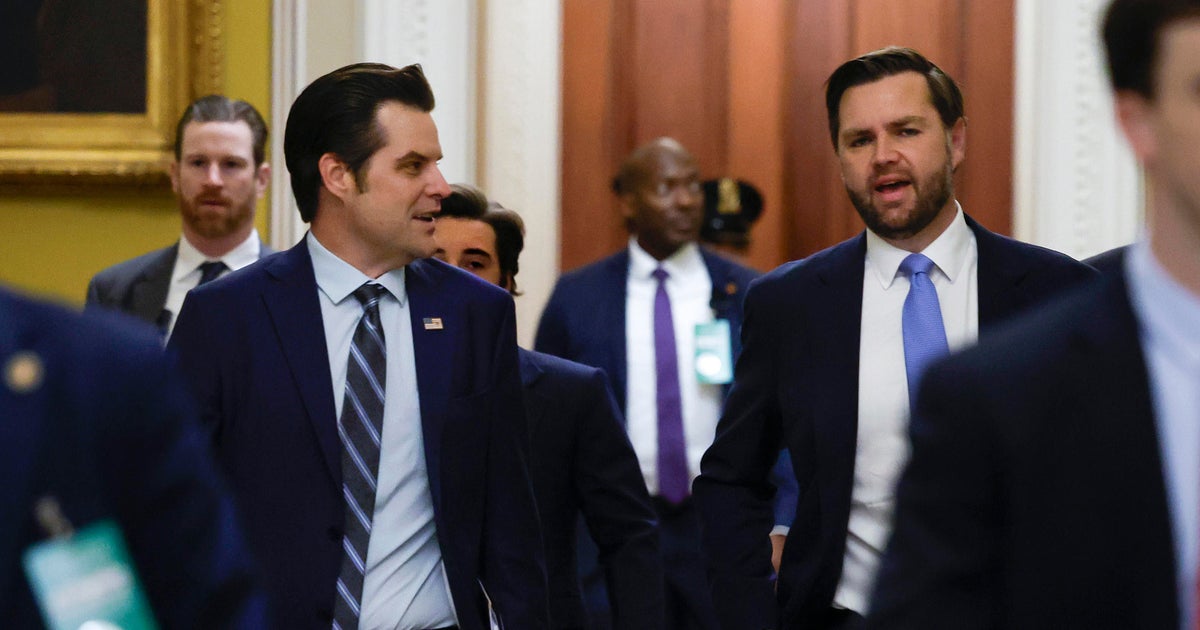Apologetic Zuckerberg offers mea culpa on first day of hearings on Facebook data scandal
WASHINGTON -- Facebook CEO Mark Zuckerberg made his long-awaited appearance before Congress and apologized for the privacy scandal that has rocked the social media giant. Investors liked his testimony -- Facebook's stock soared, making the billionaire even wealthier.
Zuckerberg was being questioned by more than 40 senators, some of whom don't buy his note of contrition.
The man in the middle of a firestorm over privacy offered a full mea culpa at a joint hearing of two Senate committees, CBS News' Nancy Cordes reports.
"We didn't take a broad enough view of our responsibility, and that was a big mistake, and it was my mistake and I'm sorry," Zuckerberg said before Congress.
Grilling him were dozens of skeptical senators, who said Facebook has a history of jeopardizing user data.
"We've seen the apology tours before," said Sen. Richard Blumenthal, D-Connecticut.
"After more than a decade of promises to do better, how is today's apology different?" said Sen. John Thune, R-South Dakota.
"So, we have made a lot of mistakes in running the company," Zuckerberg said. "I think it's pretty much impossible, I believe, to start a company in your dorm room and grow it to be the scale we're at now without making some mistakes."
The mistake that's engulfing him now is the harvesting of user information in 2015 by a third-party app posing as a personality quiz. The data was sold to Cambridge Analytica, a political consulting firm that worked for the Trump campaign.
"When you discovered that Cambridge Analytica had fraudulently obtained all this information, why didn't you inform those 87 million?" said Sen. Bill Nelson, D-Florida, referring to the number of users whose data could have been compromised.
"We did take action," Zuckerberg answered. "We took down the app, and we demanded that both the app developer and Cambridge Analytica delete and stop using any data that they had. They told us that they did this. In retrospect, it was clearly a mistake to believe them."
Some senators argued the problem is Facebook itself.
"Your business model is to maximize profit over privacy," Blumenthal said.
They said Facebook doesn't make it clear enough how that data is used and how to protect it.
"Is Facebook being safe?" said Sen. Debra Fischer, R-Nebraska.
"Senator, I think Facebook is safe. I use it and my family uses it," Zuckerberg answered. "I think everyone should have control over how data is used. Every time they share something they have control right there about who they share it with."
Zuckerberg's decision to share appeared to pay off for him and the company. After a month-long slump, Facebook stock jumped 4.5 percent Tuesday afternoon, driving his net worth up by nearly $3 billion.
"Nothing in life is free," said Sen. Orrin Hatch, R-Utah. He argued that data collection comes with benefits for users of Facebook and Google.
"These great websites that don't charge for access, they extract value in some other way and there is nothing wrong with that as long as they are upfront about what they are doing," Hatch said.
Zuckerberg revealed that some Facebook executives have been interviewed by special counsel Robert Mueller, who is investigating Russian meddling on the site and elsewhere. This is the 33-year-old executive's first time testifying on Capitol Hill, and his second time will come Wednesday, when he goes before a House committee.
Wired editor-in-chief and CBS News contributor Nick Thompson said he felt Zuckerberg "did OK" and "answered the questions thoroughly and seemed confident."
One thing that stood out to Thompson was Sen. Lindsey Graham, R-South Carolina, question about if Facebook is a monopoly.
"That's the hardest question and Zuckerberg doesn't have an answer because they effectively do have a monopoly," Thompson said. "So Graham's follow-up -- how do we trust you self-regulate if you're a monopoly? -- that's one of the hardest questions."
Thompson said Congress will face a decision about regulation. Thompson predicted there "probably" will be regulation on ads and "maybe" on privacy, but it "could get very intense" if Congress deals with antitrust regulation.



